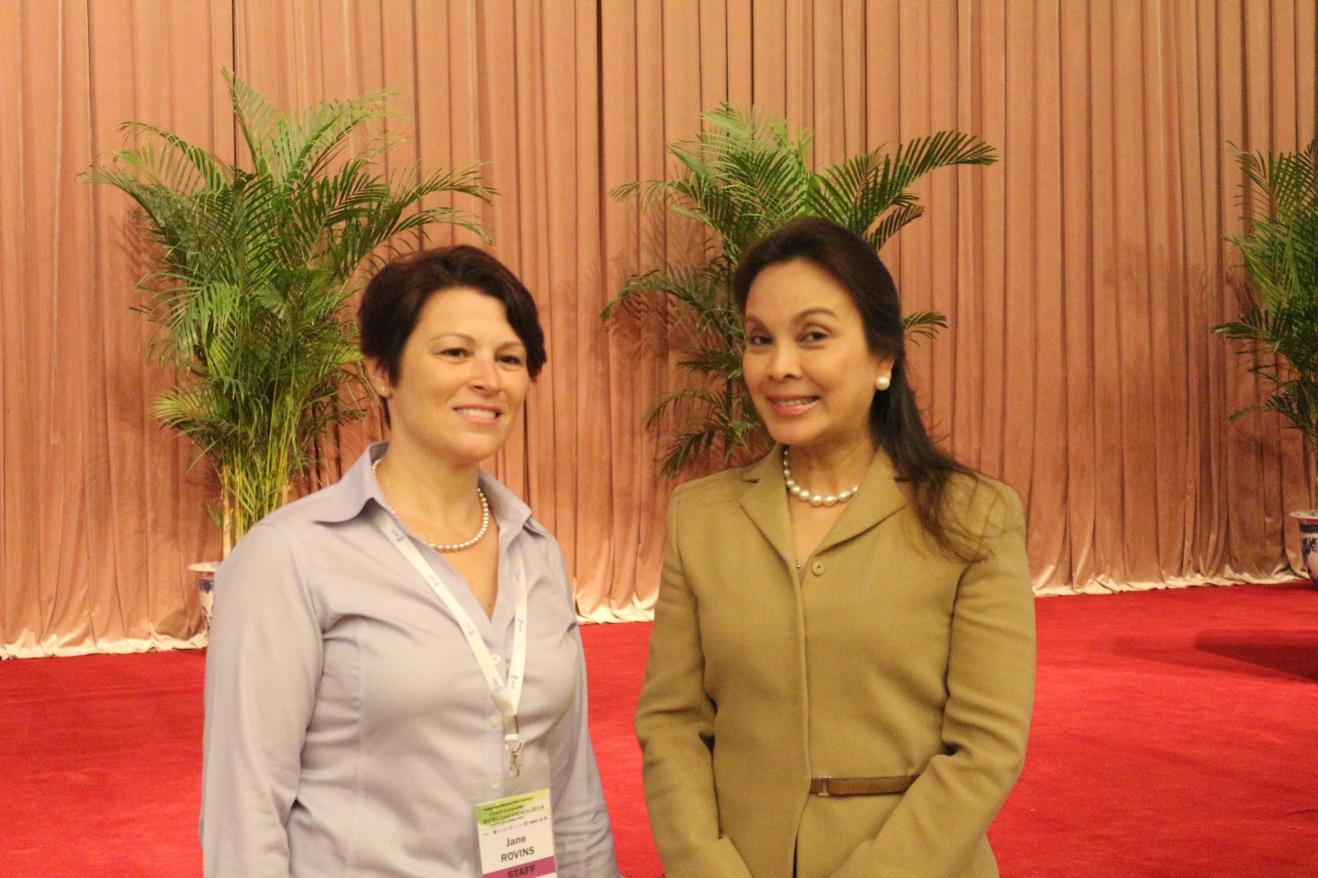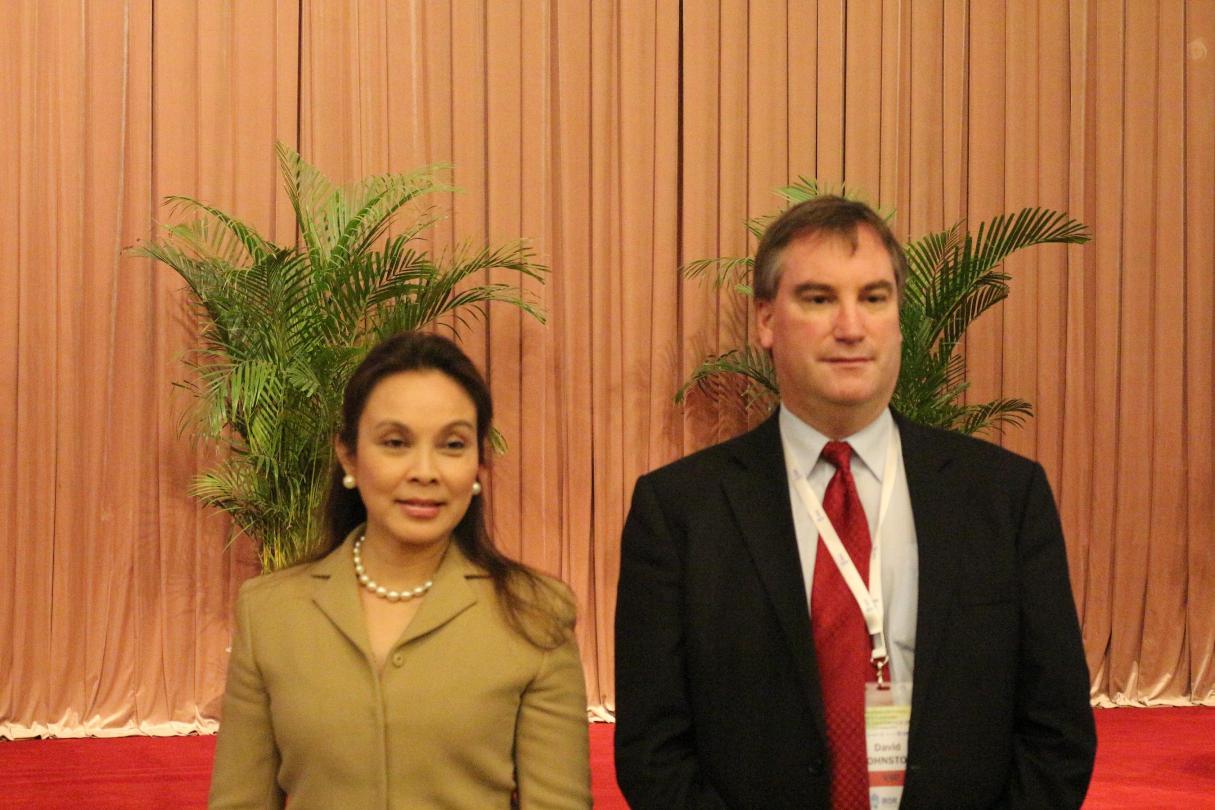 |
|
“Let us make science work towards building resilient communities,” says Senator Loren Legarda before scientists and experts in the field of disaster risk reduction, during the opening of the Integrated Research on Disaster Risk (IRDR) Conference 2014 on June 7 in Beijing, China. Legarda, UN Champion for Disaster Risk Reduction and Climate Change Adaptation, explained that information, statistics and studies on natural hazards, disaster risks and climate change should be communicated to and understood by governments and communities to effectively build resilience. |
7 June 2014 – “Future cities are not built after our time. We start building them today. Communities, fifty years from now, will look different and people will live differently. Their realities will not be defined in their time, but in the lifetime of generations before them.” In her speech to the 2nd Integrated Research on Disaster Risk (IRDR) Conference held in Beijing, China, Senator Loren Legarda, Chairperson of the Senate Committee on Climate Change and the Senate Oversight Committee on Climate Change, and a strong advocate of disaster risk reduction and climate change adaptation in the Asia Pacific, spoke of the need to reassess the way science and policy should work together, emphasizing the importance of translating knowledge into practice to effectively manage disasters and reduce risks.
 |
| Senator Loren Legarda with Dr. Jane Rovins, IRDR Conference Consultant, during the Integrated Research on Disaster Risk (IRDR) Conference 2014 in Beijing, China. Legarda was the opening keynote speaker at the conference where she stressed on how integrated science research can help Typhoon Haiyan-affected communities rebuild stronger and how translating science to practice is crucial in building resilience to disasters. |
She underscored the importance of utilizing past experiences, scientific research, and reliable data to effectively institute policies, prepare plans, and implement responses that would reduce the risks of natural disasters, such as the unprecedented Typhoon Haiyan that ravaged parts of the Philippines. According to her, “it is not enough that climate scientists know the risks. Governments, local leaders and the people on the ground should understand the vulnerability of their communities and be equipped with options, resources and the tools to enable them to become drivers of action in their respective communities.”
The IRDR Conference, convened by the IRDR Programme in partnership with the China Association for Science and Technology (CAST), is a gathering of leading experts from the academe and various professions specializing in the field of disaster risk reduction. This year’s theme is “Integrated Disaster Risk Science: A Tool For Sustainability.”
 |
| Senator Loren Legarda with Mr. David Johnston, Chair of the IRDR Science Committee, during the Integrated Research on Disaster Risk (IRDR) Conference 2014 in Beijing, China. At the conference, Legarda said that a science-based governance is needed in building disaster resilience and in managing hazard-associated risks. |

